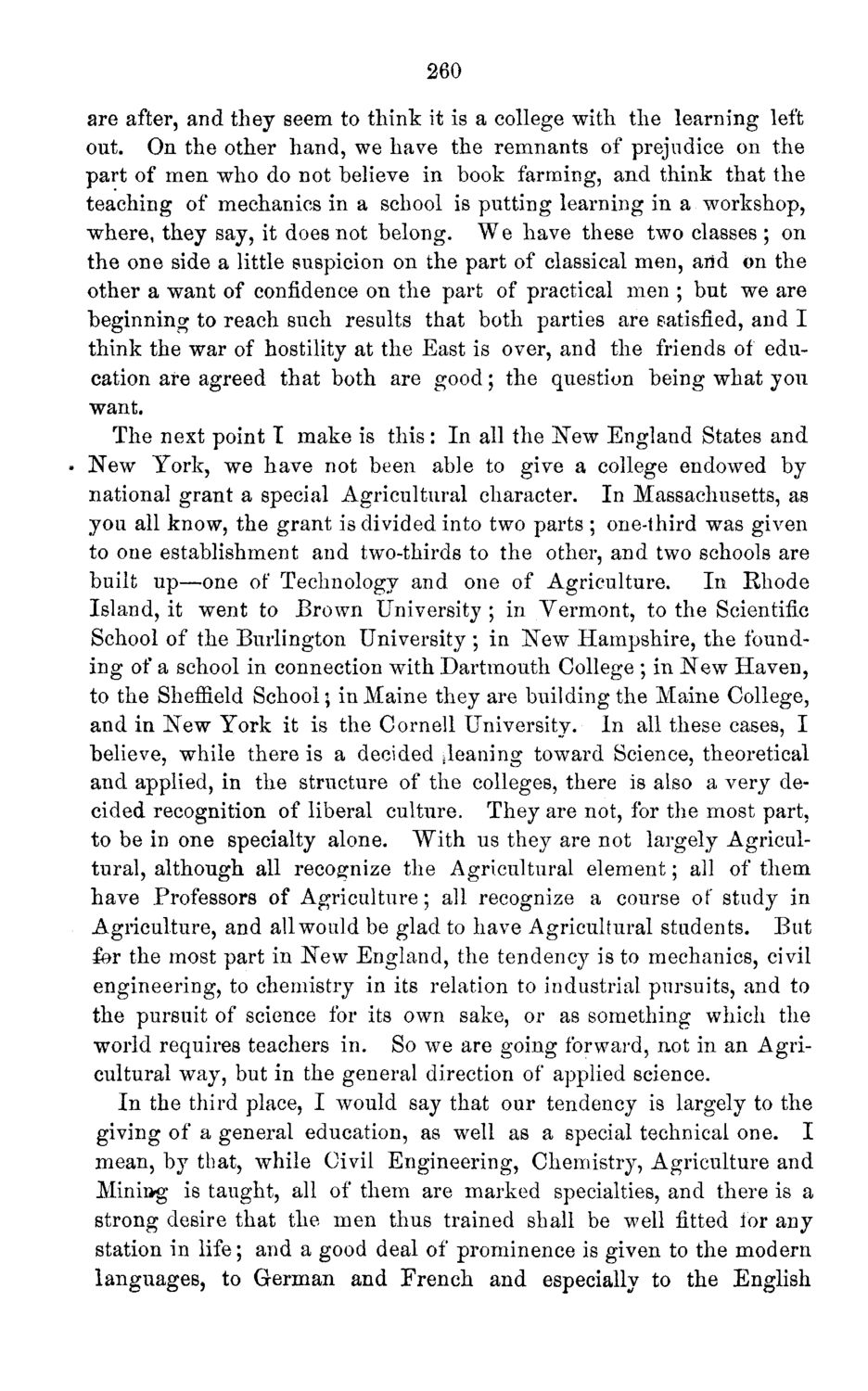| |
| |
Caption: Board of Trustees Minutes - 1871
This is a reduced-resolution page image for fast online browsing.

EXTRACTED TEXT FROM PAGE:
260 are after, and they seem to think it is a college with the learning left out. On the other hand, we have the remnants of prejudice on the part of men who do not believe in book farming, and think that the teaching of mechanics in a school is putting learning in a workshop, where, they say, it does not belong. We have these two classes ; on the one side a little suspicion on the part of classical men, arid on the other a want of confidence on the part of practical men ; but we are beginning to reach such results that both parties are satisfied, and I think the war of hostility at the East is over, and the friends of education are agreed that both are good; the question being what you want. The next point T make is this: In all the New England States and * New York, we have not been able to give a college endowed by national grant a special Agricultural character. In Massachusetts, as you all know, the grant is divided into two parts ; one-third was given to one establishment and two-thirds to the other, and two schools are built up—one of Technology and one of Agriculture. In Rhode Island, it went to Brown University ; in Vermont, to the Scientific School of the Burlington University ; in New Hampshire, the founding of a school in connection with Dartmouth College ; in New Haven, to the Sheffield School; in Maine they are building the Maine College, and in New York it is the Cornell University. In all these cases, I believe, while there is a decided gleaning toward Science, theoretical and applied, in the structure of the colleges, there is also a very decided recognition of liberal culture. They are not, for the most part, to be in one specialty alone. With us they are not largely Agricultural, although all recognize the Agricultural element; all of them have Professors of Agriculture; all recognize a course of study in Agriculture, and all would be glad to have Agricultural students. But for the most part in New England, the tendency is to mechanics, civil engineering, to chemistry in its relation to industrial pursuits, and to the pursuit of science for its own sake, or as something which the world requires teachers in. So we are going forward, not in an Agricultural way, but in the general direction of applied science. In the third place, I would say that our tendency is largely to the giving of a general education, as well as a special technical one. I mean, by that, while Civil Engineering, Chemistry, Agriculture and Mining is taught, all of them are marked specialties, and there is a strong desire that the men thus trained shall be well fitted for any station in life; and a good deal of prominence is given to the modern languages, to German and French and especially to the English
| |